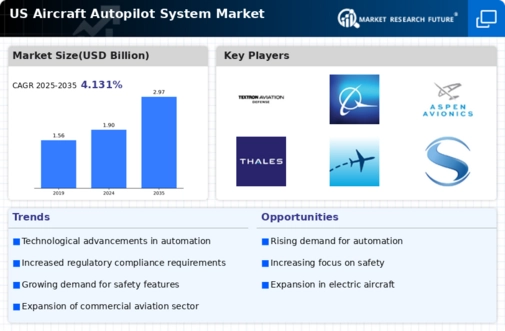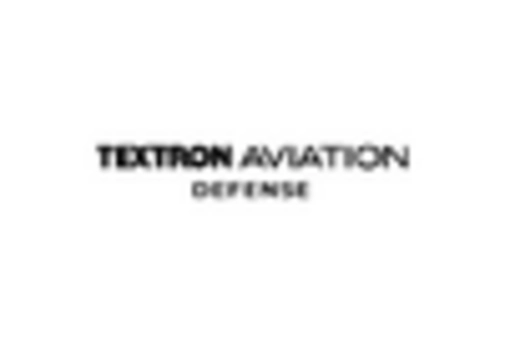The competitive landscape of the US Aircraft Autopilot System Market is characterized by a dynamic interplay of established aerospace manufacturers and nimble innovators that collectively drive advancements in flight automation technology. This segment of the aviation market has seen steady growth due to increasing demand for intelligent flight control systems that enhance safety and operational efficiency. Innovations in artificial intelligence, sensor technology, and regulatory changes have propelled market evolution, compelling companies to adopt strategic collaborations and enhance research and development efforts.
Additionally, the trend towards environmentally sustainable aviation practices adds layers of complexity, as companies aim to integrate eco-friendly technologies into their autopilot systems to meet evolving industry standards and consumer expectations.Textron Aviation holds a significant position in the US Aircraft Autopilot System Market, leveraging its extensive expertise in aircraft manufacturing and design. The company is renowned for its emphasis on delivering reliable and well-engineered autopilot solutions that cater to both commercial and general aviation sectors. Textron Aviation prides itself on the versatility of its products, enabling seamless integration with various aircraft models.
The strength of the company lies in its robust engineering capabilities, customer-centric approach, and a strong network of service centers across the United States. This ensures that clients receive comprehensive support throughout the lifecycle of their aircraft, enhancing customer loyalty and satisfaction while positioning the company as a trusted name in the industry.Boeing is another key player in the US Aircraft Autopilot System Market, recognized for its sophisticated autopilot solutions integrated into a wide range of commercial and military aircraft.
The company’s emphasis on innovation is evident in its continuous investment in research and development, resulting in advanced autopilot technologies that prioritize safety, automation, and efficiency. Boeing's strategic initiatives often involve mergers and acquisitions that enhance its technological capabilities and expand its market reach. The company’s product portfolio includes advanced systems designed for large commercial airliners and military jets, incorporating features such as advanced flight management systems and enhanced navigation capabilities.
Through these strengths and a strong commitment to safety and reliability, Boeing has established itself as a formidable competitor in the US market, delivering high-performance autopilot systems that comply with stringent regulatory requirements.






















Leave a Comment